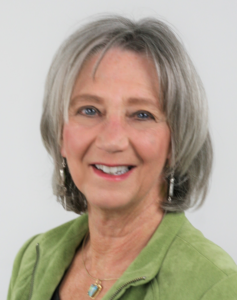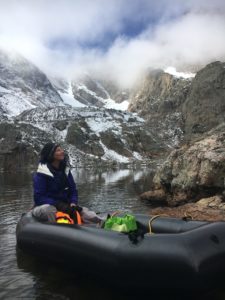
Jill Baron, a research scientist and ecologist with Colorado State University’s Natural Resource Ecology Laboratory in the Warner College of Natural Resources, and Director of the John Wesley Powell Center for Analysis and Synthesis, was one of three United States Geological Survey leaders to receive a 2022 Presidential Rank Award for her work and leadership as a scientist and civil servant.
The Presidential Rank Awards are the most prestigious honors in the federal career civil service and are awarded annually by the U.S. President. The awards recognize and celebrate senior career employees for exceptional performance and leadership over an extended period of time.
Baron’s 40-plus year career has focused on understanding the impacts of global change on ecosystems. Her research and leadership have helped create a solid scientific foundation for effective management and protection of the nation’s natural resources, especially in protected lands such as national parks and forests.
“Scientific understanding of how ecosystems work both in the presence and absence of human stresses is absolutely necessary to protect the natural processes that sustain the environment and society,” Baron said. “I’ve been very fortunate to be able to pursue a career protecting national parks through the discovery of scientific knowledge.”
An Award-Winning Career
Baron credits her Ph.D. in Range Science from Colorado State University and career-long collaboration with her alma mater to her successes in scientific research for the public good.
In 1979, Baron got a master’s degree from the University of Wisconsin Madison and went on to work for the Park Service in the Washington office. She wrote a successful proposal to understand the history and effects of acid rain in Rocky Mountain National Park. That led to research in Loch Vale Watershed and in 1981, Baron moved the research base to CSU where she studied hundreds of lakes in Colorado and elsewhere. A long-term collaboration between USGS, the National Park Service, and CSU developed that continues to this day.
While working full time, Baron took classes at CSU and got her Ph.D. in Range Science in 1991. Because of Baron’s work, Loch Vale Watershed is now known for evaluating the impacts of global change on mountain watersheds worldwide.
“NREL was and is a powerhouse of ecosystem theory, science, and practice. I was surrounded by colleagues who think big and collaborate with each other; it provided an incredible model for the kind of use-inspired research I do to help protect public lands,” Baron said.

Baron’s research into high elevation ecosystems began to help the NPS understand the potential impacts of acid rain falling in Rocky Mountain National Park.
However, instead of finding evidence of acid rain, she found evidence of fertilizer (nitrogen) in the rain and snow. That nitrogen is an unwelcome byproduct of energy production, transportation, and especially agriculture. Many years of research and monitoring in Loch Vale Watershed found evidence of change from nitrogen inputs throughout the alpine, forests, and lakes. The change was deemed to be damage by the NPS, the Environmental Protection Agency, and the State of Colorado.
In 2007, The Colorado Nitrogen Deposition Reduction Program was established by the State of Colorado to reduce inputs nitrogen pollution by working with stakeholders to reduce emissions. The program relies on the data from Loch Vale Watershed to monitor progress towards the goal of pollution reduction.
“I am proud that my research has helped develop policy for protection of our natural resources; that is the essence of being a civil servant,” Baron said.
A Leader in the Field
The Presidential Rank Award also acknowledges Baron for her years of leadership. In 2009, Baron founded the USGS Powell Center, an international synthesis center based in Fort Collins. Baron’s role as director allows her to continue working in a collaborative environment with teams of scientists to address pressing Earth and environmental science questions, such as understanding the role of fluid injection from hydrofracking on earthquakes and the conservation of monarch butterflies. Most recently, Powell Center was instrumental in developing the science behind the National Natural Capital Accounting framework.
Through her affiliation with WCNR, Baron has advised more than 20 CSU graduate students and several undergraduate honors students. Passionate about promoting women and minorities in science, Baron served as the president of the Ecological Society of America and as a faculty mentor for CSU’s chapter of Strategies for Ecology Education, Diversity, and Sustainability. SEEDS was established to enhance ecology education and professional opportunities for students, especially those from underrepresented groups.
“It is not a stretch to say my education, affiliation, and collaboration with Colorado State University has enabled my accomplishments. From its emphasis on interdisciplinary system-level scholarship to its land grant mission, CSU is the perfect partner for the study of ecosystems to provide scientific knowledge that will protect them for the future.”